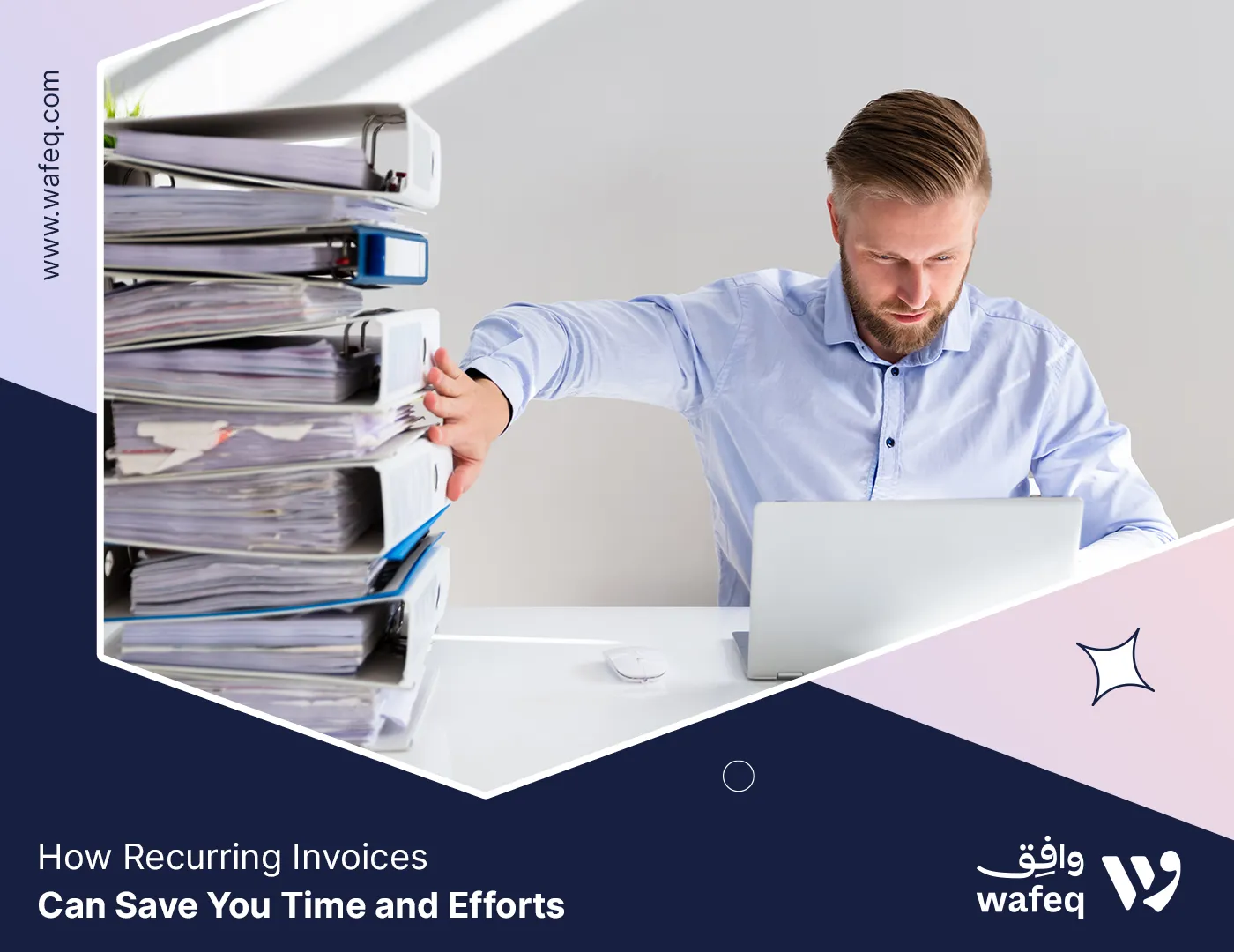Qatar Commercial Registration: Requirements, Fees, and Process Explained

Acquiring a commercial register in Qatar is crucial for any business aiming to operate legally and efficiently. This official registration, issued by the Ministry of Commerce & Industry (MOCI), does more than grant legal recognition but also ensures compliance with local laws and regulations. Understanding the registration process, the required documents, and the eligibility criteria is essential for entrepreneurs and investors to save time, reduce legal risks, and establish a strong foundation for business growth. This guide provides a comprehensive overview of how to obtain a commercial register in Qatar, practical tips, and expert insights.
What is a Commercial Register in Qatar?
A Commercial Register in Qatar is an official government record that legally recognizes a business as an authorized entity to operate within the country. It is issued by the Ministry of Commerce & Industry (MOCI) and proves that the company complies with Qatari laws and regulations. The commercial register provides several key benefits:
- Legal recognition: Enables the business to sign contracts, open corporate bank accounts, and participate in legal proceedings.
- Business credibility: Enhances trust with suppliers, clients, and investors.
- Operational authorization: Required for conducting business activities, including importing, exporting, and providing services.
Different types of commercial entities are eligible for registration, including:
- Limited Liability Companies (LLC)
- Sole proprietorships
- Branch offices of foreign companies
- Partnerships and joint ventures
Eligibility Criteria for Obtaining a Commercial Register
To obtain a commercial register in Qatar, a business must meet specific eligibility criteria set by the Ministry of Commerce & Industry (MOCI). These criteria vary depending on whether the applicant is a Qatari national or a foreign investor. Key eligibility requirements include:
- Legal status of the applicant Qatari nationals can fully own certain types of companies. Foreign investors may establish joint ventures or branches based on local regulations and ownership restrictions.
- Minimum capital requirements Limited Liability Companies (LLCs) generally require a minimum share capital, which varies by business activity. Sole proprietorships may have lower or no capital requirements, but must comply with licensing conditions.
- Approved business activity The company’s commercial activity must be legally permitted in Qatar. Some activities may require additional approvals from government authorities.
- Legal forms of business eligible for registration Limited Liability Company (LLC), Sole proprietorship, Branch office of a foreign company, Partnership, or joint venture
- Additional requirements for foreign investors Valid residency or business visa, Local sponsor or partner (if required by law), and Compliance with sector-specific regulations
Step-by-Step Process to Obtain a Commercial Register
Obtaining a commercial register in Qatar involves several structured steps designed to ensure legal compliance and smooth business operations. The Ministry of Commerce & Industry (MOCI) has streamlined the process, but careful preparation is essential.
- Pre-Approval and Name Reservation The first step in obtaining a commercial register is selecting a unique trade name for the business. The proposed name must be submitted to the Ministry of Commerce & Industry (MOCI) for approval to ensure it is not already registered by another entity. Once approved, the name is reserved for a limited period, allowing the business to proceed with document preparation and registration without conflicts.
- Document Preparation Proper document preparation is essential for a smooth registration process. This includes gathering identity proofs, lease agreements, and any approvals required for regulated activities. In addition, the company’s Articles of Association or partnership agreement must be drafted in accordance with legal standards. Ensuring that all documents meet MOCI formatting and content requirements reduces the risk of delays or rejection during the submission process.
- Submission of Application After preparing the documents, the complete application is submitted to MOCI along with the applicable registration fees. The ministry reviews the application to verify compliance with local laws and regulations. During this review, MOCI may request additional information or clarifications to ensure that all requirements are met. A well-prepared submission increases the likelihood of swift approval.
- Issuance of Commercial Register Once the application is approved, MOCI issues the commercial register certificate. This certificate legally authorizes the business to operate in Qatar, allowing it to open corporate bank accounts, enter into contracts, and perform official business activities. It is essential to keep the commercial register updated with any changes in ownership, company structure, or business activities to maintain compliance.
- Post-Registration Compliance After obtaining the commercial register, businesses may need additional licenses if their activities fall under regulated sectors. Registration with other governmental authorities, such as the tax department or labor ministry, may also be required. Maintaining ongoing compliance ensures the business operates legally and avoids penalties or operational interruptions.
Required Documents for Commercial Registration
Before applying to a commercial register in Qatar, it is essential to prepare all the necessary documents. Proper documentation ensures compliance with legal requirements and also helps in avoiding registration delays or rejection. This section outlines the key documents that business owners and investors must have ready to complete the registration process efficiently.
- Identity and Residency Documents All business owners must provide valid identity documents. For Qatari nationals, this includes a national ID or passport. Foreign investors must submit a valid passport and a residency permit or a business visa. These documents confirm the owners' legal identity and are essential for registration.
- Lease Agreement or Proof of Office Location A commercial lease agreement or proof of the business address is required to register a company in Qatar. The lease must be legally valid and correspond to the location where business operations will be conducted. This ensures the company has a verifiable physical presence, which is mandatory for commercial registration.
- Articles of Association or Partnership Agreement Companies must submit a formal document outlining the company's structure, ownership distribution, and operational rules. For Limited Liability Companies (LLCs) or partnerships, the Articles of Association or partnership agreement are essential. This document defines all shareholders' or partners' rights and responsibilities and ensures compliance with Qatari law.
- Approvals for Regulated Activities Certain business activities in Qatar require additional approvals or permits from relevant authorities. For example, sectors such as healthcare, education, or financial services have strict regulatory requirements. Obtaining these approvals before registration helps avoid delays and ensures the business can operate legally.
- Other Supporting Documents Additional documents may be required depending on the type of company and its activities. These could include bank reference letters, professional qualifications, or proof of prior business experience. Ensuring all documents are complete and accurately prepared increases the chances of a smooth registration process.
Common Challenges and How to Avoid Them
Even with careful preparation, businesses often encounter challenges during the commercial registration process in Qatar. Understanding these common obstacles and knowing how to address them in advance can save time, reduce legal risks, and ensure a smoother registration experience. The following points highlight the key challenges and practical strategies to avoid them.
- Incomplete or Incorrect Documentation One of the most common reasons for delays or rejections in commercial registration is submitting incomplete or improperly formatted documents. Ensuring all required documents are complete, accurate, and compliant with MOCI standards is essential. Double-checking forms, approvals, and agreements before submission can prevent unnecessary delays.
- Ownership and Legal Restrictions for Foreign Investors Foreign investors may face restrictions regarding ownership percentages or the requirement of a local partner, based on business activity. Being aware of these legal limitations and structuring the business accordingly helps avoid legal complications or rejection of the registration application.
- Delays in Government Approvals Some sectors require additional approvals or permits from specialized government authorities. Delays in obtaining these approvals can hold up the entire registration process. Planning, submitting all necessary applications early, and maintaining communication with the relevant authorities can minimize these delays.
- Errors in Business Activity Description Incorrect or unclear descriptions of the intended business activities may result in registration delays or the need for revisions. Providing precise and legally compliant descriptions aligned with the Qatar business classification system ensures a smooth review by MOCI.
- Failure to Meet Capital Requirements Certain company types, such as LLCs, have minimum capital requirements that must be verified during registration. Not meeting these requirements can cause delays or rejection. Ensuring the business has the required capital deposited and properly documented helps streamline the approval process.
Fees and Costs Associated with Commercial Registration
Understanding the financial commitments involved in obtaining a commercial register is crucial for businesses planning to establish operations in Qatar. Recent reforms have significantly reduced registration and licensing fees, making it more accessible for both local and foreign entrepreneurs. The following outlines the current costs associated with commercial registration, along with additional expenses to consider during the setup process:
- Commercial Registration Fee The Ministry of Commerce and Industry (MOCI) has significantly reduced the commercial registration fee to QAR 500 for a single main activity. This reduction aims to encourage new businesses and simplify the registration process.
- Licensing Fees Licensing fees for commercial, industrial, or public premises, including branches, have been reduced to QAR 500 annually. This applies to new licenses and renewals, making it more affordable for businesses to operate legally in Qatar.
- Home-Based Business Licensing Licensing fees have been reduced to QAR 300 for individuals operating businesses from home. This initiative supports micro-entrepreneurship and encourages home-based businesses to formalize their operations.
- Trade Name Reservation Securing a unique trade name is a prerequisite for registration. The reservation fee typically ranges from QAR 250 to QAR 1,000, depending on the complexity and language of the name.
- Notarization and Legalization Costs Documents such as the Articles of Association may require notarization, with fees varying between QAR 50 and QAR 500, depending on the document type and volume.
- Office Lease Expenses A physical office is mandatory for most business activities. Annual lease costs can range from QAR 5,500 to QAR 27,400, influenced by location and office specifications.
- Municipality Registration Registering the business premises with the local municipality is required, with fees typically between QAR 270 and QAR 550, depending on the office size and location.
- Immigration and Labor Approvals Immigration and labor approvals are necessary for businesses planning to hire employees, and Associated costs range from QAR 550 to QAR 1,100 to cover permits and documentation.
- Legal and Consultancy Fees Engaging legal or consultancy services for document preparation and registration assistance can incur fees between QAR 1,370 and QAR 4,100, based on the service provider and complexity.
- Minimum Capital Requirements A minimum capital of QAR 200,000 is required for Limited Liability Companies (LLCs). However, this amount may not need to be deposited upfront unless specified by the business activity.
Post-Registration Obligations and Compliance
After obtaining a commercial register in Qatar, businesses must comply with ongoing regulatory obligations to operate legally. Understanding these post-registration requirements is essential to avoid penalties, ensure smooth operations, and maintain credibility with clients and government authorities.
- Renewal of Commercial Registration Businesses must renew their commercial registration annually with MOCI to remain compliant. Failure to renew on time can result in fines or suspension of business activities. Renewal involves submitting updated company information, paying the required fees, and ensuring all changes in ownership or business activities are reflected in the register.
- Tax Compliance Companies operating in Qatar are required to comply with local tax regulations. This includes registering for VAT if applicable, submitting regular tax returns, and maintaining accurate financial records. Non-compliance can result in penalties, interest, or legal action. Read Also: Preparing for Qatar’s Upcoming VAT and E‑Invoicing.
- Licensing for Regulated Activities If the business activity requires specific permits or licenses, these must be renewed and updated as necessary. Certain sectors, such as healthcare, education, and financial services, have additional reporting and compliance requirements that must be met consistently.
- Employment and Labor Law Compliance Employers must ensure that all employees have valid work permits and that labor contracts comply with the Qatar Labor Law. Businesses are also required to maintain proper employee records and adhere to regulations regarding working hours, benefits, and workplace safety.
- Record-Keeping and Reporting Companies must maintain proper financial and operational records, including invoices, contracts, and accounting documents. Accurate record-keeping is essential for audits, inspections, and regulatory reporting. Non-compliance can affect credibility and result in legal penalties.
After registration, the Accounting Program Wafeq assists businesses in maintaining compliance by providing tools for VAT reporting, invoicing, and financial record-keeping, ensuring adherence to Qatari regulations.
After registration, the Accounting Program Wafeq assists businesses in maintaining compliance by providing tools for VAT reporting, invoicing, and financial record-keeping, ensuring adherence to Qatari regulations.
Know more about: Choosing the Best Accounting Software in Qatar for VAT Compliance.
Securing a commercial register in Qatar lays the foundation for a compliant and thriving business. Businesses can minimize delays and risks by carefully following the registration steps, preparing accurate documentation, and addressing regulatory requirements.
FAQs about Obtaining a Commercial Register in Qatar
What is the Commercial Registration (CR)?
The Commercial Registration (CR) is an official document issued by the Ministry of Commerce and Industry (MOCI) in Qatar, granting permission to individuals or entities to conduct business activities legally within the country. It serves as legal proof of the establishment of a business.
How do I apply for a Commercial Registration?
To apply for a CR, you must apply to MOCI, providing necessary documents such as a trade name reservation, a copy of the owner's ID, a lease agreement for the business premises, and the Articles of Association. The application can be submitted online through MOCI's e-services portal or in person at their office.
What are the requirements for obtaining a CR?
Key requirements include:
- A unique trade name reservation approved by MOCI.
- A notarized Memorandum and Articles of Association.
- Proof of identity for all shareholders and authorized signatories.
- A valid lease agreement for a commercial office space.
- Payment of the applicable registration fees.
How long does it take to obtain a CR?
The processing time for a CR application can vary. Typically, it may take a few days to a couple of weeks, depending on the completeness of the submitted documents and MOCI workload.
Is there a minimum capital requirement for obtaining a CR?
Yes, the minimum capital requirement depends on the type of business entity. For example, a Limited Liability Company (LLC) may require a minimum capital investment, which should be deposited into a corporate bank account
Can a foreigner own a business in Qatar?
Foreigners can own businesses in Qatar through various structures, such as:
- Limited Liability Company (LLC) with a Qatari partner holding at least 51% of the shares.
- Branch offices of foreign companies.
- Entities established in free zones like the Qatar Financial Centre (QFC), where 100% foreign ownership is permitted
Do I need a trade license in addition to the CR?
Yes, obtaining a trade license is mandatory for conducting business activities in Qatar. The trade license is issued by MOCI and is typically obtained simultaneously with the CR.
What are the penalties for operating without a CR?
Operating without a valid CR is illegal in Qatar and can result in penalties, including fines, business closure, and legal action. It's essential to ensure that your business is properly registered and compliant with local regulations.
Can I renew my CR online?
Yes, CR renewals can be processed online through MOCI's e-services portal. It's advisable to initiate the renewal process at least one month before the expiration date to avoid any disruptions in business operations
What should I do if my CR application is rejected?
If your application is rejected, MOCI will provide reasons for the rejection. You may need to address the issues raised, such as providing additional documentation or clarifying discrepancies, and then resubmit the application.
Streamline your financial processes with Wafeq, an accounting system offering smart features and a user-friendly interface to manage your business effectively.
Streamline your financial processes with Wafeq, an accounting system offering smart features and a user-friendly interface to manage your business effectively.



.png?alt=media)










